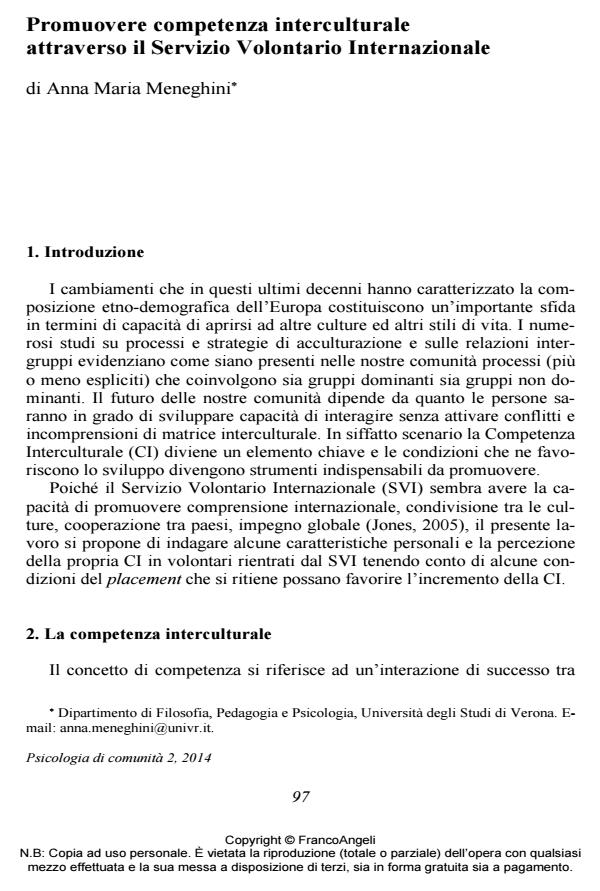Promoting Intercultural Competence by means of International Voluntary Service
Journal title PSICOLOGIA DI COMUNITA’
Author/s Anna Maria Meneghini
Publishing Year 2015 Issue 2014/2
Language Italian Pages 11 P. 97-107 File size 65 KB
DOI 10.3280/PSC2014-002008
DOI is like a bar code for intellectual property: to have more infomation
click here
Below, you can see the article first page
If you want to buy this article in PDF format, you can do it, following the instructions to buy download credits

FrancoAngeli is member of Publishers International Linking Association, Inc (PILA), a not-for-profit association which run the CrossRef service enabling links to and from online scholarly content.
International volunteers report that they gain a lot from their experiences abroad in terms of social and relational competences, especially when they are called on to interact in multicultural environments. This study involved 69 volunteers who had returned from overseas placements. The aim was to analyze to what extent the conditions that are supposed to foster Copyright © FrancoAngeli N.B: Copia ad uso personale. È vietata la riproduzione (totale o parziale) dell’opera con qualsiasi mezzo effettuata e la sua messa a disposizione di terzi, sia in forma gratuita sia a pagamento. 127 intercultural competence (degree of immersion in the host community, guided reflection, contact reciprocity and institutional support) contributed to the participants’ individual perception of the degree of competence they had gained. The data suggest that some of these conditions might be taken into particular account by sending organizations when they plan International Voluntary Service programs since these aspects influence the development of intercultural competence.
Keywords: International volunteering, intercultural competence, immersion, guided reflection, contact reciprocity.
Anna Maria Meneghini, Promuovere competenza interculturale attraverso il Servizio Volontario Internazionale in "PSICOLOGIA DI COMUNITA’" 2/2014, pp 97-107, DOI: 10.3280/PSC2014-002008